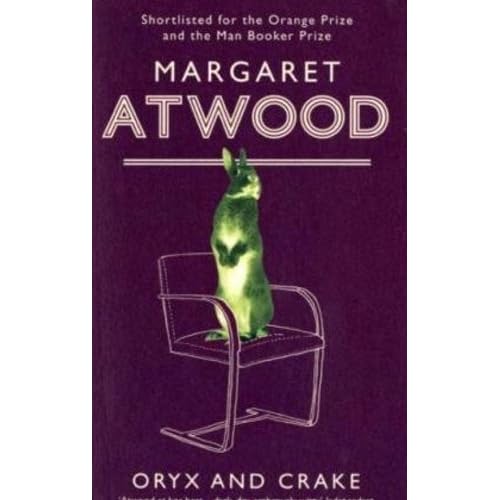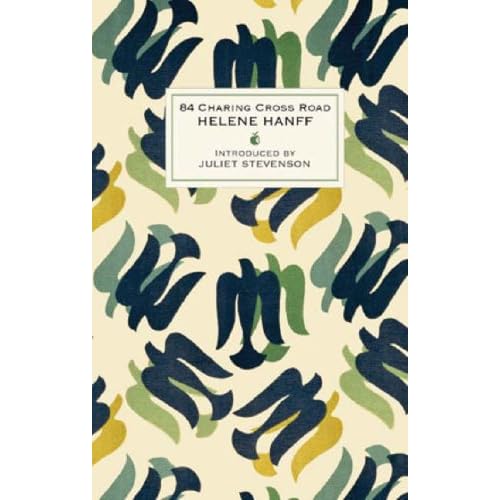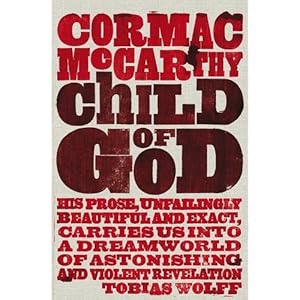 Junky is William S. Burroughs semi-autobiographical story, about being a drug-addict - a "junky," if you will - in the 1940s in the good ol' US of A. At less than two hundred pages, this is an extremely short, albeit insightful read.
This first-person narrative is an unapologetic unemotional documentary of Burroughs' experiences, the friends he made, and the encounters with the law, as they tried to clamp down on drugs, addiction and peddling, with the help of "pigeons".
Junky is William S. Burroughs semi-autobiographical story, about being a drug-addict - a "junky," if you will - in the 1940s in the good ol' US of A. At less than two hundred pages, this is an extremely short, albeit insightful read.
This first-person narrative is an unapologetic unemotional documentary of Burroughs' experiences, the friends he made, and the encounters with the law, as they tried to clamp down on drugs, addiction and peddling, with the help of "pigeons".
Originally published under the pseudonym, William Lee (Lee being his mother's maiden name), at the very outset, the reader is told that the narrator is an Ivy League graduate (Harvard), with a trust-fund to his name. So, the theories of a "troubled childhood" or "hard-times" or "bad company" are almost instantly cast aside.
The question is frequently asked: Why does a man become a drug addict?
The answer is usually that he does not intend to become an addict. You don't wake up one morning and decide to become a drug addict. [...] You become a narcotics addict because you do not have strong motivations in any other direction. Junk wins by default. I tried it as a matter of curiosity. I drifted along taking shots when I could score. I ended up hooked.
Burroughs does not make any excuses, but instead writes about the junk community with a kind of objectivism that would make a good journalist proud. His tale takes him through New York City, and then Kentucky, New Orleans and finally Mexico. However, in spite of the change in location, the paradigm remains the same:
Junk is often found adjacent to ambiguous or transitional districts: East Fourteenth near Third in New York; Poydras and St.Charles in New Orleans; San Juan Létran in Mexico City. Stores selling artificial limbs, wig-makers, dental mechanics, loft manufacturers of perfumes, pomades, novelties, essential oils. A point where dubious business enterprise touches Skid Row.
What makes this a truly tremendous feat is that Burroughs managed to get it published in the anti-drug America of the 1950s, where books like this, in all likelihood, got censored. However, despite being unapologetic, this book is almost a narrative on why addiction is bad, and how difficult a habit it is to kick, despite one telling oneself they have it all under control.
From junk sickness, there seems to be no escape. Junk sickness is the reverse side of junk kick. The kick of junk is that you have to have it. Junkies run on junk time and junk metabolism. They are subject to junk climate. They are warmed and chilled by junk. The kick of junk is living under junk conditions. You cannot escape from junk sickness any more than you can escape from junk kick after a shot.
The singular focus of the book is junk, despite it being autobiographical. Trysts with law, friends Burroughs scored with, friends he relied on and how he got the money to score are all detailed impeccably - you could say, it's almost documented. Morphine, coke, heroin - how to procure them and the high you get off them - you name it, it's there. However, the one complaint I had with the book is, the reader is not privy to the author's personal life at all. For example, in a passing statement, we learn that Burroughs has a wife - wait...hang on... what?! Some of those bits were slightly confusing, but then, one must take a step back and remember that this is all about the addiction, and everything else is secondary.
I quite enjoy the Beatniks, in an almost perversive sense - from Kerouac's On The Road to this. As Kerouac says:
But yet, but yet, woe, woe unto those who think that the Beat Generation means crime, delinquency, immorality, amorality ... woe unto those who attack it on the grounds that they simply don’t understand history and the yearning of human souls ... woe in fact unto those who make evil movies about the Beat Generation where innocent housewives are raped by beatniks! ... woe unto those who spit on the Beat Generation, the wind’ll blow it back.
Have you read any Beatnik literature? Or, do you have any on the to-read pile? I suspect my next one would be another Burroughs...Naked Lunch.
 Set in London, against the backdrop of the subprime crisis and 7/7, Faulks' A Week In December takes place in the week leading up to Christmas in 2007. It's my first foray into the literary world created by Faulks, and I come out the other side marginally ambivalent.
The book follows one week in the life of a myriad of characters: a hedge-fund manager and a porn star, a footballer playing in a top-four club and a jihadist, a tube driver and a lawyer, and... well, there are many characters.
Set in London, against the backdrop of the subprime crisis and 7/7, Faulks' A Week In December takes place in the week leading up to Christmas in 2007. It's my first foray into the literary world created by Faulks, and I come out the other side marginally ambivalent.
The book follows one week in the life of a myriad of characters: a hedge-fund manager and a porn star, a footballer playing in a top-four club and a jihadist, a tube driver and a lawyer, and... well, there are many characters.
 Ghostwritten is David Mitchell's first novel, and on finishing it, I've now read all his works, which pleases me greatly. Of course, the fact that this is a tremendous debut adds to the pleasure, albeit, I really do wish there was another Mitchell on my shelf, just waiting to be read.
The sub-title of the book reads, "a novel in nine parts," and so it is. It could easily a collection of nine short stories, each told in first person by a different narrator, who seemingly have nothing to do with the previous narrator(s). However, six degrees of separation (or fewer) bind the characters together, through time and different geographical locations. The link between the characters isn't blatantly evident though, as one might come to expect from Mitchell, and at times, it's confusing as to how the characters come together, and to figure out if there is any kind of causal sequence. That said, one can't help but anticipate the revelation of the link, and then deliberate over it for a bit, which in turn means that one can't help but read the book, scrutinising almost every word to see where the link lies.
Ghostwritten is David Mitchell's first novel, and on finishing it, I've now read all his works, which pleases me greatly. Of course, the fact that this is a tremendous debut adds to the pleasure, albeit, I really do wish there was another Mitchell on my shelf, just waiting to be read.
The sub-title of the book reads, "a novel in nine parts," and so it is. It could easily a collection of nine short stories, each told in first person by a different narrator, who seemingly have nothing to do with the previous narrator(s). However, six degrees of separation (or fewer) bind the characters together, through time and different geographical locations. The link between the characters isn't blatantly evident though, as one might come to expect from Mitchell, and at times, it's confusing as to how the characters come together, and to figure out if there is any kind of causal sequence. That said, one can't help but anticipate the revelation of the link, and then deliberate over it for a bit, which in turn means that one can't help but read the book, scrutinising almost every word to see where the link lies. The Amazing Adventures of Kavalier and Clay is well - amazing. Not only does this book celebrate the "great, mad, new American art form" and pays a tribute to the spirit of Americana in the 1930s, it simultaneously depicts the despair in Europe during the second World War, and how incredibly disconcerting the war was - both, for the people who had to live it, as well as the people who managed to escape it.
Eighteen year old Josef Kavalier flees Prague in the golem's coffin, leaving his family behind, and ends up in Brooklyn, New York, where he's forced to bunk with his seventeen year old cousin, Samuel Klayman (Clay). The cousins, both aspiring artists, hit it off immediately, and Clay introduces Kavalier to the wonderful world of comic books - in an age where Superman has just hit the stands, where the comic book obsession is rampant, and where there's big bucks to be made, the cousins decide to create their very own super-hero to rake in the money.
The Amazing Adventures of Kavalier and Clay is well - amazing. Not only does this book celebrate the "great, mad, new American art form" and pays a tribute to the spirit of Americana in the 1930s, it simultaneously depicts the despair in Europe during the second World War, and how incredibly disconcerting the war was - both, for the people who had to live it, as well as the people who managed to escape it.
Eighteen year old Josef Kavalier flees Prague in the golem's coffin, leaving his family behind, and ends up in Brooklyn, New York, where he's forced to bunk with his seventeen year old cousin, Samuel Klayman (Clay). The cousins, both aspiring artists, hit it off immediately, and Clay introduces Kavalier to the wonderful world of comic books - in an age where Superman has just hit the stands, where the comic book obsession is rampant, and where there's big bucks to be made, the cousins decide to create their very own super-hero to rake in the money. It was in
It was in  I hadn't read anything by Palahniuk until I read this little gem. I still recall purchasing this book at Waterstones: initially, the plan was to pick up
I hadn't read anything by Palahniuk until I read this little gem. I still recall purchasing this book at Waterstones: initially, the plan was to pick up  If there ever was a perfect book, this would be it. Yes, I know that's an extremely strong and subjective statement, but I don't think many people who have read this will disagree. It's feel-good, happy, and just... perfect.
84 Charing Cross Road revolves around two people living halfway across the world from one another, with their warmth, kindness, generosity, and love of books bringing them together. The book is a series of real letters exchanged between the two of them over a period of twenty years, starting in October 1949.
If there ever was a perfect book, this would be it. Yes, I know that's an extremely strong and subjective statement, but I don't think many people who have read this will disagree. It's feel-good, happy, and just... perfect.
84 Charing Cross Road revolves around two people living halfway across the world from one another, with their warmth, kindness, generosity, and love of books bringing them together. The book is a series of real letters exchanged between the two of them over a period of twenty years, starting in October 1949. I loved
I loved  This is the fifth book by
This is the fifth book by  I've been meaning to read a Laski for a long time, and I finally picked this book out of my shelf, just to help me return to the world of reading - one of my many loves that I've been ignoring recently. And on finishing it, I was gently reminded as to why I love reading so much.
I've spent the past couple of months literally obsessing over things, and trying to make a life-changing decision (career-wise). However, while reading (and on finishing) this book, I almost immediately started focusing on the points it raises and the questionable character of this book's protagonist. Annoyingly, I can't seem to make my mind up about where I stand.
I've been meaning to read a Laski for a long time, and I finally picked this book out of my shelf, just to help me return to the world of reading - one of my many loves that I've been ignoring recently. And on finishing it, I was gently reminded as to why I love reading so much.
I've spent the past couple of months literally obsessing over things, and trying to make a life-changing decision (career-wise). However, while reading (and on finishing) this book, I almost immediately started focusing on the points it raises and the questionable character of this book's protagonist. Annoyingly, I can't seem to make my mind up about where I stand.